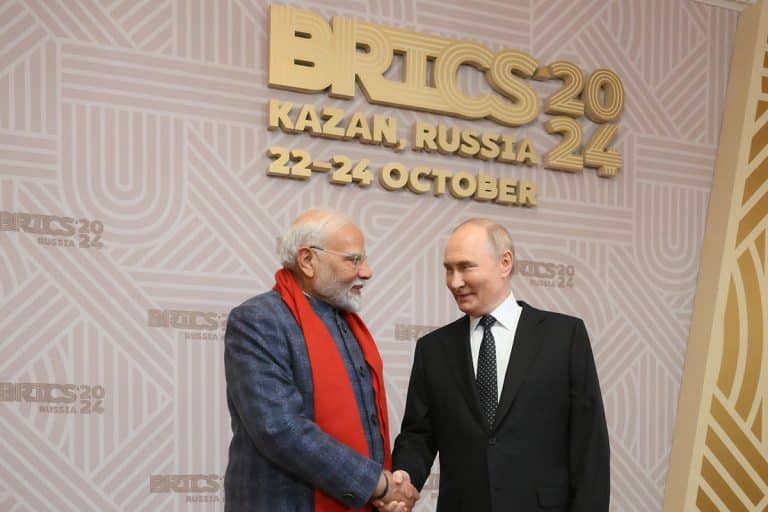Russian President Vladimir Putin hosted the landmark BRICS Summit in Kazan on Tuesday, marking the bloc’s first gathering since its significant expansion.
The three-day event brings together leaders from 24 countries, with Moscow using the gathering to demonstrate its diplomatic influence despite Western isolation over its actions in Ukraine.
Kremlin foreign affairs adviser Yuri Ushakov described the gathering as “Russia’s largest foreign policy event ever,” according to TASS news agency.
The summit welcomes five new members – Egypt, Ethiopia, Iran, Saudi Arabia, and the United Arab Emirates – expanding BRICS’ global footprint to represent approximately 45 per cent of the world’s population and 25 per cent of global GDP.
Key bilateral meetings
Chinese President Xi Jinping emphasised bilateral ties with Russia during talks with Putin.
“The world is undergoing profound changes unseen in a century, and the international situation is chaotic and intertwined,” Xi said, as reported by TASS. He praised the “profound friendship” between their nations, highlighting its role in their countries’ modernisation.
Indian Prime Minister Narendra Modi’s discussion with Putin centered on peaceful conflict resolution in Ukraine.
“We have been in constant contact regarding the conflict between Russia and Ukraine,” Modi stated, underlining India’s commitment to peaceful resolution. The leaders agreed to hold an upcoming Indian-Russian intergovernmental defense cooperation meeting in Moscow.

South African President Cyril Ramaphosa expressed strong support for Moscow, acknowledging Russia’s historical support since the anti-Apartheid struggle.
Turkish President Recep Tayyip Erdogan’s presence highlighted BRICS’ growing appeal to the Global South.
Economic initiatives
BRICS New Development Bank President Dilma Rousseff emphasised the importance of national currency project financing.
“Countries of Global South badly need funding at the moment, while conditions to obtain it are rather difficult,” Rousseff stated to TASS, outlining the bank’s commitment to both sovereign and private initiative projects.
Thirteen countries are currently seeking BRICS partner status, demonstrating growing interest in alternative economic frameworks.
Diplomatic developments
UN Secretary-General Antonio Guterres’s attendance drew Ukrainian criticism, though the UN defended his participation citing BRICS’ global significance.
Iranian President Masoud Pezeshkian characterised BRICS cooperation as a challenge to US influence, stating before his departure that “this event can eclipse the US unipolar world.”

Cultural exchange and future agenda
The opening day featured traditional performances and cultural exchanges.
Putin is scheduled for approximately 20 bilateral meetings, including talks with Palestinian leader Mahmoud Abbas regarding Gaza.
In addition, a significant Modi-Xi meeting is planned for Wednesday, their first since recent border tensions.
The summit will conclude with the Kazan Declaration on Thursday, focusing on economic cooperation, alternative payment systems, and global challenges.






